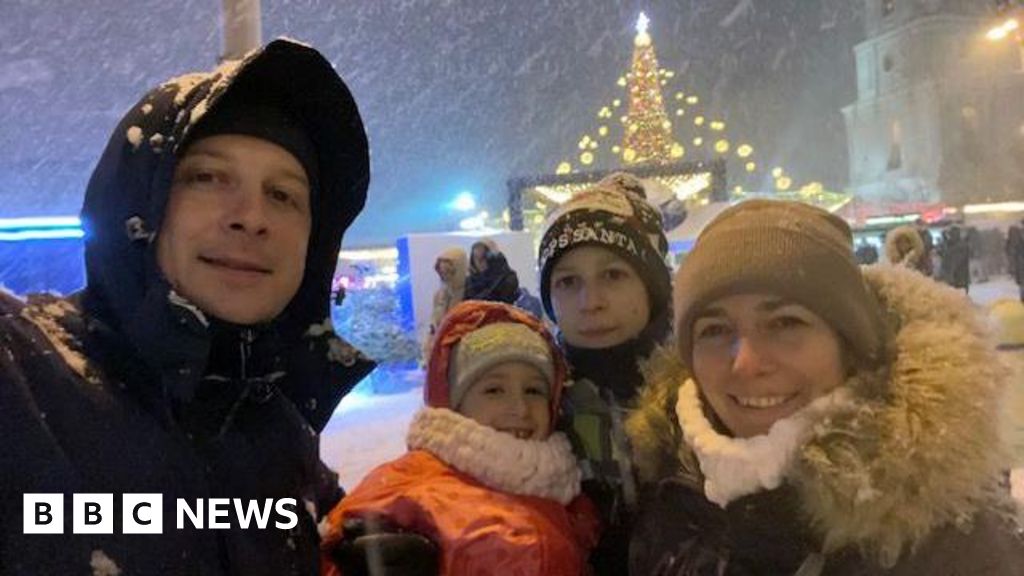**Ukrainian Family’s Christmas Away from Home**
Olesia Manolova, a mum of two, is spending her third Christmas in Omagh, Northern Ireland. She was forced to flee Ukraine after Russia invaded in 2022. This time of year makes it harder for her family.
Ms Manolova said she worries about returning to Ukraine for years. When she first came to Northern Ireland, she thought it would only take a few months and then she could return home. But now she realizes it will take longer.
The Executive Office says that by November 2024, there were over 3,000 Ukrainians in Northern Ireland under the Homes for Ukraine Scheme. This includes those benefiting from the Ukraine Extension Scheme, which allows them to extend their stay.
Ms Manolova is worried about how her children would adapt to life back in Ukraine if they spent longer in Northern Ireland. She’s also concerned that her son might have to join the Ukrainian army and that her daughter wouldn’t be able to follow the Ukrainian educational system.
**Many Ukrainians are Traumatised**
Mary Lafferty, who runs the Empowering Refugees and Newcomers Organisation (ERANO) in Omagh, says many Ukrainians are traumatised. They use the centre as a meeting point not only for practical purposes but also to socialise. The women’s group at the centre is particularly active.
Ms Lafferty said that despite appearing confident, many Ukrainian women are still traumatised by their experiences. They worry about their families and those they left behind in Ukraine. There’s also concern about security, as Ukrainians don’t have a guarantee from the UK government that they can stay or become residents.
**New Visa Scheme to Open**
The Home Office has announced a new scheme that will allow Ukrainians with existing visas to apply for an additional 18 months to remain in the UK. This new scheme is set to open in February.
Fuzova Yuliia, who lives in Omagh with her three children, hopes one day she’ll be able to return to Ukraine. She’s optimistic about the future and is currently learning English and adapting to life in Northern Ireland.
Read More @ www.bbc.com












